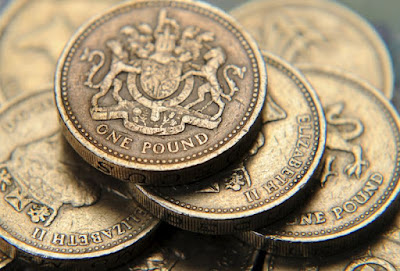By Yashaswini Swamynathan
(Reuters) - Wall Street eked out gains on Monday as Bank of America's better-than-expected profit boosted optimism about the U.S. quarterly earnings season, but not by enough to send the Dow and the S&P 500 to fresh highs.
SoftBank's $32 billion deal to buy British chip designer ARM Holdings (O:ARMH) lifted U.S. chip stocks, but that was pertly offset by a drop in energy stocks (SPNY) as oil prices dropped after the failed coup attempt in Turkey.
Bank of America's (N:BAC) report continued the momentum for U.S. banks kicked off by JPMorgan (N:JPM) last week. The bank's shares rose 1.6 percent to $13.87, helping the S&P financial index (SPSY) gain 0.36 percent.
"We're now on to the next shiny new object and that's earnings season," said Paul Nolte, portfolio manager at Kingsview Asset Management in Chicago.
"As long as companies beat earnings estimates, investors will feel comfortable buying stocks."
Not only is the decline in earnings of S&P 500 components expected to slow to 4.5 percent in the second quarter, from 5 percent in the first, but more companies are expected to beat analysts' estimates, according to Thomson Reuters data.
At 12:29 p.m. ET (1629 GMT), the Dow Jones Industrial Average (DJI) was up 11.4 points, or 0.06 percent, at 18,527.95, about 29 points away from its record intraday high.
The S&P 500 (SPX) was up 3.93 points, or 0.18 percent, at 2,165.67, 3 points shy of its all-time intraday high.
The Nasdaq Composite (IXIC) was up 26.00 points, or 0.52 percent, at 5,055.59.
Five of the 10 major S&P indexes were higher, led by the technology sector's (SPLRCT) 0.8 percent gain.
The SoftBank deal sent ARM's U.S.-listed shares surging 41.5 percent. U.S. chipmakers Broadcom (O:AVGO) and Qualcomm (O:QCOM) were up about 1 percent, while the semiconductor index (SOX) rose 1.5 percent to its highest in 16 months.
Shares of IBM (N:IBM), Yahoo (O:YHOO) and Netflix (O:NFLX) were flat ahead of their results after the close.
Hasbro's (O:HAS) 6.3 percent drop led the decliners on the S&P on concerns of slowing growth in the toymaker's biggest business, which makes toys for boys. Rival Mattel (O:MAT) was down nearly 1 percent.
Advancing issues outnumbered decliners on the NYSE by 1,706 to 1,196. On the Nasdaq, 1,498 issues rose and 1,257 fell.
The S&P 500 index showed 20 new 52-week highs and no new lows, while the Nasdaq recorded 97 new highs and 14 new lows.
